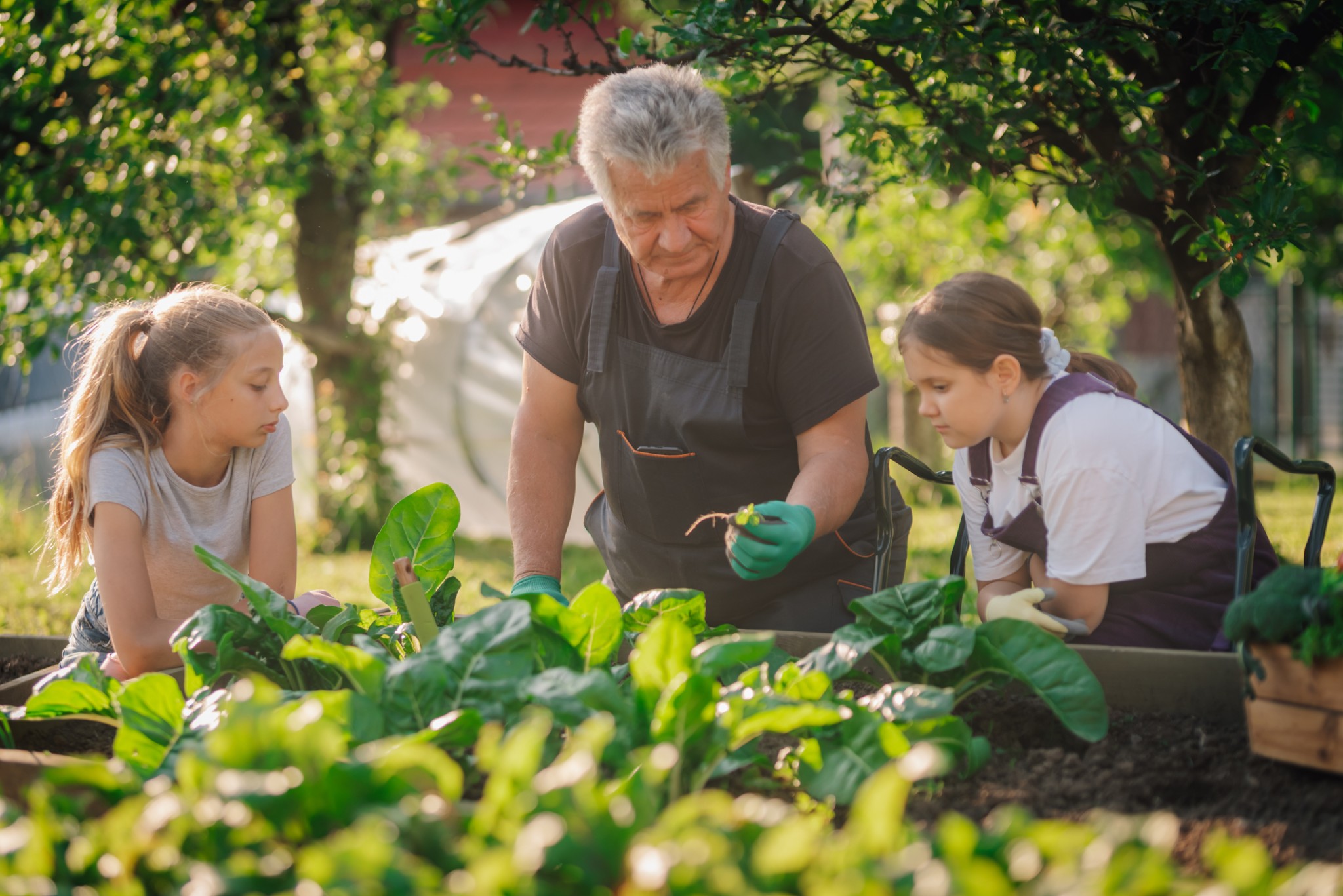
-
Oct5Sun
The Garden That Heals: How Intergenerational Programs Protect and Empower Our Most Vulnerable
October 5, 2025
Intergenerational programs are not simply community-building exercises. They are strategic interventions that protect vulnerable populations, reduce isolation, and foster resilience across age groups. When designed with safeguarding principles at the core, these programs become essential tools for promoting dignity, inclusion, and safety.
Why These Programs Are Critical
Older adults are increasingly vulnerable to loneliness, cognitive decline, and neglect, conditions that often go unnoticed until they become critical. At the same time, youth frequently struggle with emotional regulation, lack of mentorship, and are disconnected from meaningful relationships. Intergenerational programs offer a structured solution to these parallel challenges by creating environments where both groups thrive.
When seniors are engaged in these programs, they often experience a renewed sense of purpose and social connection. Youth, in turn, gain empathy, develop stronger communication skills, and learn to value the lived experiences of older generations. The ripple effect extends beyond individual participants: communities become more cohesive, less fragmented, and more resilient.
However, these outcomes are only achievable when intergenerational initiatives are grounded in safeguarding protocols, designed for accessibility, and informed by trauma-sensitive practices. Without these foundational elements, the potential for harm outweighs the promise of connection.
Real-Life Success Story: Maple Ridge’s Intergenerational Garden Project
In Maple Ridge, British Columbia, the Intergenerational Garden Project stands as a successful example of what thoughtful collaboration can achieve. Initiated by the Maple Ridge, Pitt Meadows, Katzie Seniors Network, and supported by the federal New Horizons for Seniors Program, the project created a shared garden space where seniors and elementary school students could work side by side.
Senior volunteers, ranging from master gardeners to retired educators, were carefully vetted and trained to ensure meaningful and secure engagement. Students participated in hands-on learning focused on food literacy, environmental awareness, and teamwork. Teachers actively incorporated seniors’ life experiences into classroom discussions, enriching the curriculum with intergenerational wisdom. Meanwhile, the broader community rallied behind the initiative: local firefighters assisted with infrastructure, businesses donated supplies, and the garden adopted an open-gate policy to encourage broad participation.
The program fostered strong relationships between generations and became a valued part of the community. Participants expressed appreciation for the opportunity to connect, contribute, and learn from one another.
Safeguarding Standards That Must Be Met
For intergenerational programs to succeed, safeguarding must be central to their design and implementation. I recommend the following standards:
Comprehensive Screening: All participants must undergo background checks, interviews, reference checks and role-specific training.
Qualified Supervision: Facilitators must be trained in trauma-informed care and elder and youth engagement.
Accessibility Planning: Physical, cognitive, and emotional accommodation must be built into the program design.
Boundary Management: Clear guidelines for interaction protect both youth and seniors from harm.
Informed Consent: Parents and Caregivers should be well-informed of the program activities and the risks associated with the activities, and sign consent forms for their loved ones to participate.
Continuous Evaluation: Feedback mechanisms ensure the program remains responsive and safe over time.
These measures help create environments where participants of all ages feel secure, respected, and supported. Plan to Protect® can provide resources and tools to help you accomplish these standards.
-
Final Thoughts
Intergenerational programs, when guided by strong safeguarding principles, offer a powerful way to build connections and community. They provide opportunities for older adults and youth to learn from each other, share experiences, and contribute meaningfully. With thoughtful planning and oversight, these programs can become lasting assets to the communities they serve.
Note: If you are a not-for-profit, you can apply for a grant to support your efforts in protecting and engaging Seniors in your community through Canada’s New Horizons for Seniors Program. You can apply for grants up to $25k. The grant application has closed for this year, but consider applying for a grant in 2026. We would welcome the opportunity to partner with you in these endeavours.



Leave a Comment